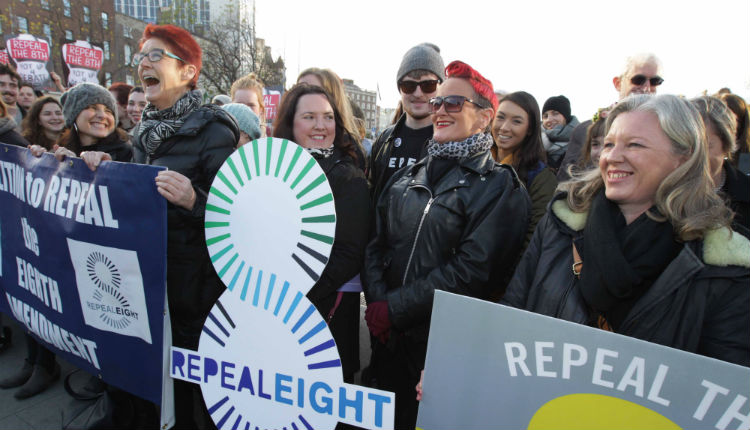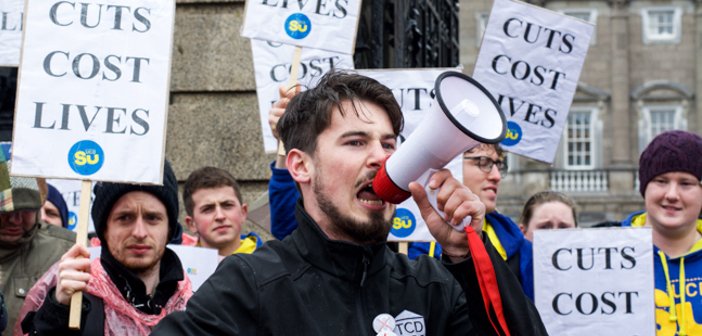After Eighth | How can Ireland continue the success of Repeal?
Over the past few decades, Ireland has managed to shed its reputation as Catholicism’s last great bastion; we’ve gone from a country set in decades old logic to becoming an increasingly liberal and progressive society. The past few referenda show that growing mentality in action, with same-sex couples finally able to marry, and women gaining much needed autonomy over their own bodies.
Much of this was achieved by younger generations, raised by more open-minded parents, who balked at this kind of backwards legislation; they were disgusted to the point that they were able to mobilize effectively and get these laws changed. Looking back, it’s pretty obvious that the same-sex marriage movement was a direct precursor to the debate surrounding repeal. It seemed a conscious choice to move on to another piece of backwards legislation.
Which leads me to wonder; after repealing the eighth, what’s next for this forward movement? These past two referenda have shown that, in the current climate, we can not only inspire societal change in Ireland, but enact it. Many generations would be lucky to effect one such historic change for a country, but to get two in the space of a few years is historic in itself.
Still, why stop now? Why not try enact more progressive change throughout Irish society, and get Ireland to a point where we’re leaders in societal and economic change?
The question remains of what to focus on next.

Homelessness is currently one of the biggest crisis’ that Ireland has ever experienced. At the moment, thousands of children are forced to sleep in hotels and hostels, often sharing just a room with their families. Thousands more single men and women are left on the streets every night, only swept away when high profile dignitaries visit, such as Pope Francis – help those less fortunate, right?
The Homelessness crisis has been spiralling for almost a decade, with the governments attempt to put a band-aid on the problem proving pathetic. As it stands, Ireland has enough houses built to home every citizen; however, very few are the ‘right type’ of housing. In essence, many empty houses are ruled out for our homeless population.

Then, we’ve got the crisis going on in our healthcare system. Currently, the entire system is so under staffed and under funded that it comes across like a Fawlty Towers version of healthcare. On top of the hundreds, if not thousands, of patients who wait in corridors every night, we’ve got tens of thousands – or hundreds of thousands, depending on the report – waiting on appointment lists.
Many of these people wait years in order to be seen by doctors, and in most cases, the only contact they’ll likely see will be a letter asking if they still require an appointment. Politicians have said for years that our healthcare system needs an overhaul, but any fixes applied seem to only address a small symptom, and not the overall problem. Our healthcare system is currently dying of blood loss, and the government seems to think that using different types of plasters will make a difference.
And we’ve got a spate of mental health issues running throughout the county; as it stands, Ireland normally leads as one of the highest suicide rates in Europe. This severely affects younger generations, with the average age of suicide victims dropping uncomfortably low. Almost every Irish man and woman has been affected by suicide in some capacity; at some point, the majority will also have severe bouts of depression, anxiety or some other form of mental illness. It’s an issue that affects everyone in the country, so it’s time we brought about an effective way to reduce the suicide rate throughout the country, not just among adults, but among teenagers who are victims of suicide at a higher rate than ever before.

Not every change has to be for some grand societal victory, as it was with same-sex marriage and repeal. Economic changes can, and should, be just as important. Over the last few decades, inflation has meant that the cost of living has outgrown earnings, with many coming home with less real world money than previous generations did at their age. And, typically, it’s the younger generations that pay the most for this; while many of us dream of owning our own houses, economic circumstances mean that we may never get the chance to do just that.
Aside from earning less than previous generations, there’s also fewer economic opportunities for young people, even collected graduates. The fact that there are many more applicants than available opportunities means that wages begin to stagnate, as employers attempt to get appropriate employees for the lowest price.
On top of that, there’s also the issue of unpaid internships, which have taken a staggering hold in more creative fields, journalism included.
However, a push for a higher minimum wage, and the abolishment of unpaid internships would solve those issues, and may even have a positive impact on the homelessness figures.
Since we know we can enact change, should we want it, it’s time to start bringing down the worst parts of society and improving as much as possible.
